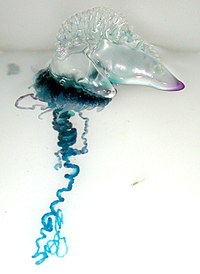
Photo from wikipedia
Simulation and optimization methods have been widely used in forklift design due to their cost-effectiveness. However, this type of method involves challenges such as the accuracy of the simulation model… Click to show full abstract
Simulation and optimization methods have been widely used in forklift design due to their cost-effectiveness. However, this type of method involves challenges such as the accuracy of the simulation model and the simulation solution time. These challenges reduce the stability and precision of the surrogate model and hence generate further optimization errors. In this paper, a multi-objective surrogate modeling (MSM) method for telescopic boom forklifts based on closed-loop transfer learning is proposed in order to solve these challenges. The MSM consists of the following two steps: to pre-train an initial deep neural network model (deep model) with a large amount of existing simulation data from the same type of forklift and to transfer the model with a small amount of measurement data collected on the current forklift. A general framework for deep neural network (DNN) training is introduced to improve the approximation ability of the initial model. Moreover, a novel uncertainty-analysis-based sampling method is suggested for measurement data development, and combined with transfer learning to form a closed-loop mode to improve the stability of the final model. The superiority of MSM is demonstrated through comparative studies with the fine-tuning method on a telescopic boom forklift with two objectives. The experimental results show that the Correlation coefficient (R) of the deep model can reach 0.9971 by using only 80 sets of training data. In addition, it can also achieve an improvement of at least a 13.25% reduction in Root Mean Squared Error (RMSE) and a 9.19% reduction on average in Maximum Absolute Error (MAE), as well as stronger robustness compared to the benchmarks. Furthermore, it will provide a valuable reference for the simulation optimization of complex electromechanical products.
Journal Title: IEEE Access
Year Published: 2023
Link to full text (if available)
Share on Social Media: Sign Up to like & get
recommendations!